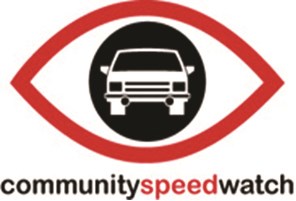Community Speed Watch
 A national initiative
A national initiative
Community Speed Watch (CSW) is a national initiative which brings together the community and the police in a joint endeavour to act as a deterrent and highlight speeding concerns, reduce road casualties and improve community safety. CSW is community driven, and is a way of re-assuring the community that they can play their part in keeping our roads safe. Speeding increases the risk of serious injury and CSW has an important part to play in helping to reduce road casualties across Dorset.
The CSW Teams in Dorset (currently in excess of 80 teams) operate with the authority of the Chief Constable of Dorset. The CSW teams are required to follow policy on how they operate which is monitored by the local Neighbourhood Policing Team (NPT) and the Dorset Police Community Speedwatch Coordinator. CSW teams do not have prosecution powers but their data creates police generated advisory letters. Since CSW was implemented in 2013 approximately 15,000 letters have been issued.
CSW Teams in Dorset operate with a basic speed detection device which is not calibrated and does not take photos; the device can resemble a mobile phone. Teams record the details of any vehicle found to be travelling in excess of the threshold onto a spreadsheet which is then submitted to Dorset Police where vetted police volunteers process these results including adding registered keeper ( RK) details. An advisory letter is then sent to the RK of the vehicle notifying them their vehicle has been monitored speeding with the time, date and location.
How does Community Speed Watch work?
- Each Neighbourhood Policing Team (NPT) area will have a dedicated CSW liaison officer and the scheme is overseen by the Dorset Police Community Speedwatch Coordinator.
- This officer can either pro-actively recruit members of the community to take part in CSW and / or they will receive requests from the public to initiate a CSW in a given area.
- Some basic background checks are made to ensure the suitability of new volunteers to the scheme.
- Once the checks have been satisfactorily completed, training is given to the volunteers in the use of the speed checking equipment and they are given advice on where it can be used. This will include the police issued Code of Conduct and a Health and Safety briefing.
- As and when the CSW team carry out speed checks, they will record how many vehicles were checked and how many were observed exceeding the speed limit thresholds (you will be advised of each location threshold before the team starts operations).
- An advisory letter will be sent by Dorset Police to the registered keeper on the first two occasions that their vehicle is seen exceeding the speed limit, by any CSW team in Dorset. If the vehicle is observed for a third time, additional checks will be made and further Police action will be taken.
- We have a dedicated CSW camera operator who as a member of Police Staff working alongside our Community Speed Watch groups across the County. When our camera operator is in attendance this will result in Notice of Intended Prosecution (NIPS) notices being issued to vehicles detected speeding instead of an advisory letter.